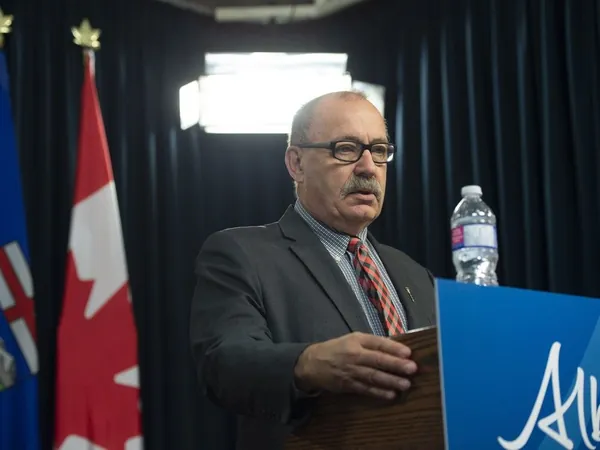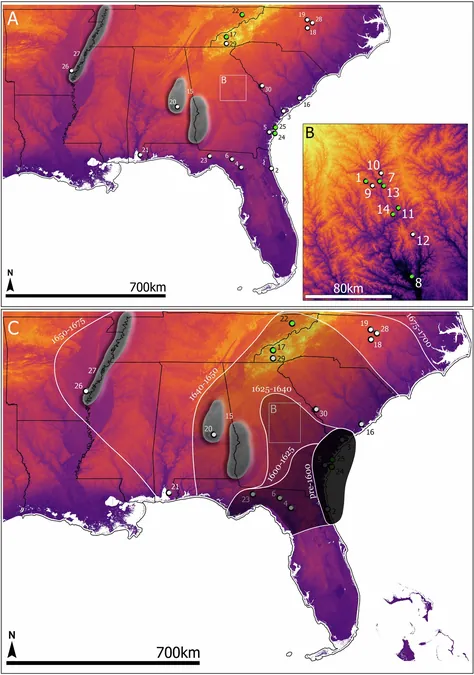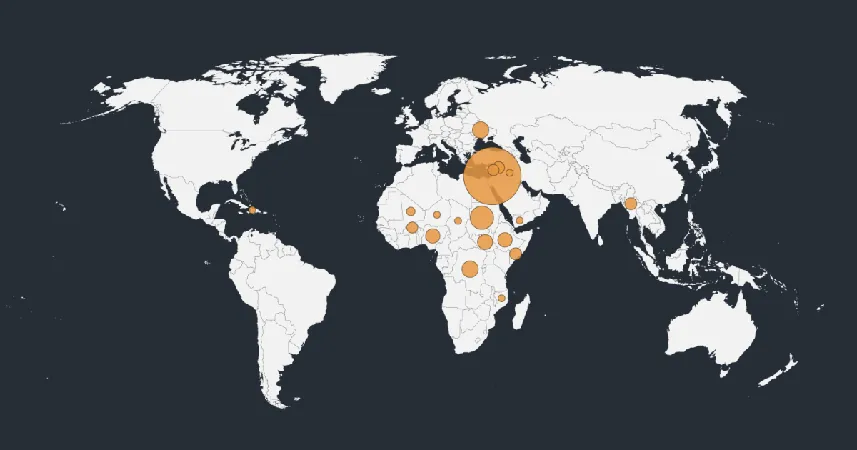
Major Funding Cuts Leave Edmonton's Regional Board in Jeopardy: What's Next?
2024-11-25
Author: Liam
Introduction
In a shocking turn of events, the Edmonton Metropolitan Region Board (EMRB) has learned that it will no longer receive its annual $1 million funding from the Alberta government starting next year. This drastic decision was shared with EMRB officials by Municipal Affairs Minister Ric McIver, delivering a blow to the board just as Calgary's regional board faced similar funding cuts.
Impact of Funding Cuts
"Allan Gamble, the chair of EMRB, expressed his astonishment during an interview, stating, 'The news was sudden. It was unexpected.'" With this change going into effect with the 2025 budget, the implications for the EMRB’s future are immense. Membership to the board will now become voluntary rather than mandatory, raising fears about the organization’s sustainability.
Background on EMRB
For context, the EMRB consists of 13 municipalities in the greater Edmonton area, working collaboratively to enhance regional development and coherence. This group includes Edmonton, St. Albert, Fort Saskatchewan, and others, all committed to ensuring mutual benefits for the communities they represent.
Declining Funding Trends
Notably, the EMRB had already seen a decline in funding over recent years, with contributions from the Alberta government dropping steadily: from $1.25 million in the fiscal year 2021-22 to $1 million in 2022-23, marking an alarming trend of fiscal tightening that raises questions about the provincial government's commitment to regional growth.
Political Reactions
Councillor Andrew Knack from Edmonton voiced strong concerns over the funding cuts, arguing that it represents a fundamental overreach of provincial authority into local matters. He stated, “This is essentially the death of this organization, and I think it would be such a loss.” Knack highlighted the critical role the EMRB has played in regional planning, allowing municipalities to cooperate and efficiently manage land use and infrastructure development.
Moreover, Alberta NDP Leader Naheed Nenshi has criticized the provincial government's move, suggesting it could dismantle statutory regional planning mechanisms that are vital for coordinated development, especially in times of housing crises. Nenshi cautioned that without these regional boards, planning efforts could descend into chaos, likening the scenario to the "Wild West."
Future Prospects
Despite the gloomy outlook, Gamble indicated that the 13 municipalities remain committed to collaboration, emphasizing that their efforts are driven by the mutual benefits seen in past successes, including the conservation of invaluable agricultural land and cost savings in infrastructure.
Looking ahead, both Gamble and McIver have expressed a hope that the municipalities might continue to work together creatively, even without provincial funding. As the EMRB faces a pivotal moment in its history, the future of regional planning in Alberta hinges on both government support and the municipalities’ resolve to collaborate amidst financial constraints.
Conclusion
As this situation unfolds, communities will undoubtedly be eager to see how this will impact development and planning strategies in the Edmonton metropolitan area. Will this be the end of effective regional cooperation, or can the municipalities find a way to thrive despite the odds? Stay tuned as we continue to monitor this developing story.









 Brasil (PT)
Brasil (PT)
 Canada (EN)
Canada (EN)
 Chile (ES)
Chile (ES)
 España (ES)
España (ES)
 France (FR)
France (FR)
 Hong Kong (EN)
Hong Kong (EN)
 Italia (IT)
Italia (IT)
 日本 (JA)
日本 (JA)
 Magyarország (HU)
Magyarország (HU)
 Norge (NO)
Norge (NO)
 Polska (PL)
Polska (PL)
 Schweiz (DE)
Schweiz (DE)
 Singapore (EN)
Singapore (EN)
 Sverige (SV)
Sverige (SV)
 Suomi (FI)
Suomi (FI)
 Türkiye (TR)
Türkiye (TR)